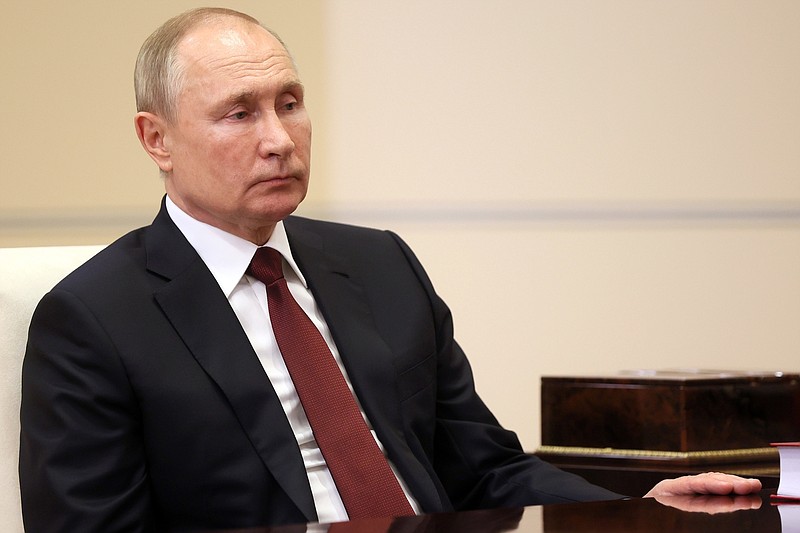This feels familiar. Russia was, after all, the national adversary of my youth. My dad was not particularly easy to perturb, but I clearly recall his anxious face one October afternoon in 1962 as the United States and Russia - in the guise of the Soviet Union - squared off over the emplacement of missiles in Cuba and arguably made their nearest advance ever to the brink of nuclear war.
For years afterward Russia was the enemy. Our schools held duck-and-cover drills and offered classes on how to provision a fallout shelter. We learned ways to protect our families from blast and radiation - it involved sandbags.
The Soviet Union collapsed in 1991. But after 30 years in the wilderness Russia is back, demanding and receiving the world's attention by threatening to invade the sovereign nation of Ukraine with 175,000 troops. It turns out that Russia is still the enemy.
The invasion of one of our allies is an act of war, and the Biden administration promises "strong measures" in response. But it also indicates that it will not commit American troops to save Ukraine. But what about saving Latvia, Lithuania, Estonia or other former Soviet states that Vladimir Putin would love to reacquire?
Our best hope is that Putin is staging pure political theater, threatening to invade Ukraine to enhance his standing and political leverage abroad and at home. Besides, it's simply in the nature of insecure strongmen to bluster and strut right up to the brink. It's a dangerous game. Usually it's hard to tell precisely where the brink is.
Whatever his intentions, I suspect that Putin has an ulterior motive, as well, or, at least, an interest in a collateral benefit from this crisis: the re-election of Donald Trump.
Republicans are eager to picture President Joe Biden as a doddering old fool without the courage or competence to confront a wily player like Putin.
The flip side of this unproven proposition is that Putin would not dare to threaten Ukraine if we had a tough, unyielding president in place, a man such as Donald Trump, for example.
But Americans should be leery of this idea. Clearly Trump was Putin's preferred candidate in 2016. And why not? Putin recognizes a compliant mark when he sees one. Even after considerable Russian meddling in our election, Trump took Putin's side in Helsinki over the evidence from his own intelligence agencies.
And if you doubt that the Trump campaign knew that it had a friend in Putin - and vice versa - you clearly haven't read the 448-page Mueller report. I have, and nothing could be plainer.
An article by Anne Applebaum in the current Atlantic is illuminating. In "The Autocrats are Winning," Applebaum argues that democracy is in a losing battle with autocrats such as Putin, Xi, Orban, Maduro, Assad, Lukashenko, Mohammed bin Salman and Erdogan. She calls these men Autocracy Inc., a club of despots bonded together by "a common desire to preserve and enhance their personal power and wealth."
Beyond the acquisition of wealth and power, Autocracy Inc. isn't interested in ideology. Every new member increases the club's strength and legitimacy. Putin recognizes a fellow autocrat in Trump and to bring the United States - the world's strongest proponent of democratic governance - into the fold would be worth more than reacquiring Ukraine.
When Kennedy and Khrushchev squared off during the Cuban Missile Crisis, ideology was at stake, and the two leaders were on opposite sides. If the Crisis had tipped over the brink into the nuclear abyss, it's possible that some version of democracy might have survived.
But once autocracy wins, we're unlikely to ever see democracy again.
Tribune Content Agency
